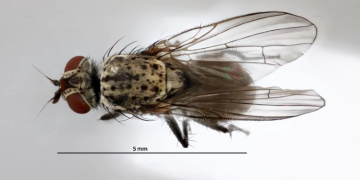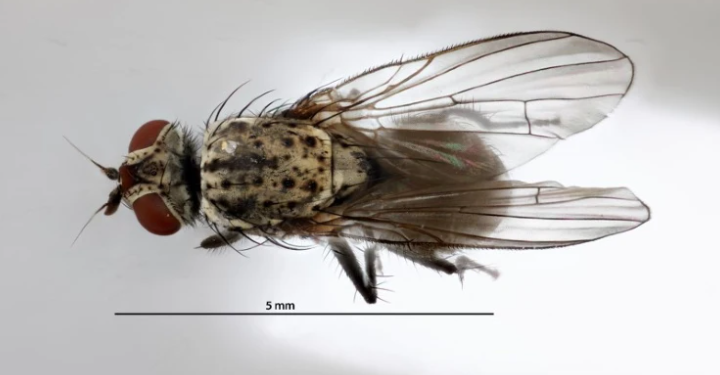#Kenya #agriculture #soilpests #smallholderfarmers #sustainablesolutions #climatechange #pestmanagement #vegetablecrops #agriculturalresilience #environmentalconservation
Kenya’s Vegetable Crops Under Siege
In Kenya, the lush fields that once promised bountiful harvests are now battlegrounds as smallholder farmers face a relentless assault from invasive soil pests. A recent study conducted by scientists from the University of Nairobi and the International Centre of Insect Physiology and Ecology (ICIPE) has uncovered the grim reality of this escalating crisis, revealing the destructive impact of two insidious fly species on vegetable crops across the region.
The study, published in Scientific Reports, highlights the emergence of Delia platura as a formidable threat to cabbage crops and Atherigona orientalis as a relentless adversary in onion fields. These invasive pests, thriving in the wake of climate change and habitat destruction, have unleashed widespread devastation, leaving behind a trail of ruined harvests and shattered livelihoods.
Researchers surveyed agricultural landscapes in five key counties—Nyandarua, Nakuru, Kiambu, Kajiado, and Nyeri—and found a landscape marred by the ravages of soil-dwelling pests. Alongside the primary culprits, white grubs, wireworms, and sap beetles, infestations of onion maggots and other co-existing pests have compounded the agricultural woes, facilitating the spread of debilitating plant diseases such as Fusarium basal rot.
The grim reality is exacerbated by the ineffectiveness of traditional control measures, with more than 95% of farmers’ efforts to combat these pests with synthetic insecticides proving futile. Dennis Beesigamukama, co-author of the study and post-doctoral research fellow at ICIPE, underscores the urgent need for a paradigm shift in pest management strategies.
“Synthetic pesticides, aside from being ineffective against these resilient pests, pose significant risks to human health and the environment,” Beesigamukama warns. “It is imperative that we prioritize the development and adoption of sustainable alternatives to safeguard both agricultural productivity and ecological balance.”
In the face of this escalating crisis, the call for action reverberates loud and clear. The time has come for stakeholders across the agricultural spectrum to unite in pursuit of innovative, cost-effective, and environmentally sustainable solutions. Only through collective effort and unwavering commitment can we stem the tide of devastation and secure a resilient future for Kenya’s agricultural sector.
The invasion of soil pests poses a grave threat to Kenya’s vegetable crops, underscoring the urgent need for sustainable management strategies. As smallholder farmers grapple with the devastating consequences of invasive species and climate-driven pest surges, concerted efforts are essential to develop effective, environmentally friendly solutions that safeguard agricultural livelihoods and preserve the ecological integrity of the region.































